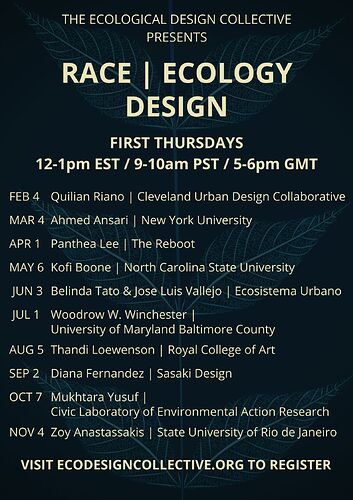Our ecological crisis stems from a profound disruption of natural systems around the world, economic structures that celebrate such destruction as progress, and social arrangements that inflict the consequences of this damage on the most marginal and vulnerable of populations.
Design practices are often complicit in these predatory developments, reflecting the exclusionary nature of our capitalist present, and the harsh legacies of racism and colonialism that have long condoned the exploitation of societies and environments “elsewhere.”
What would it mean to imagine instead a design process grounded in attentive listening and responsiveness, in a willingness to engage vernacular knowledge, in the insights that arise from shared struggle, in an abiding commitment to social and environmental justice?
